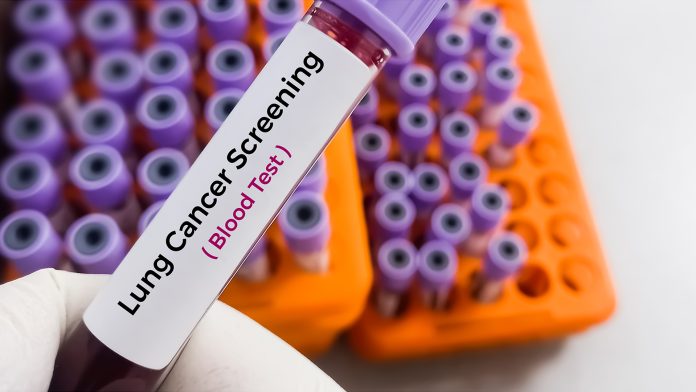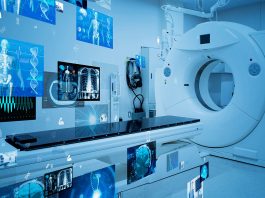Scientists from the Johns Hopkins Kimmel Cancer Center have developed an AI blood test that accurately identifies lung cancer.
The team has performed a prospective study to demonstrate that AI technology could effectively identify people who are more likely to have lung cancer based on DNA fragment patterns in blood.
This new blood test could improve screening and reduce death rates by identifying high-risk patients who would benefit from follow-up CT scans, according to the team’s computer modelling.
The study’s corresponding author, Victor Velculescu, MD, PhD, explained: “We have a simple blood test that could be done in a doctor’s office that would tell patients whether they have potential signs of lung cancer and should get a follow-up CT scan.”
Limitations of current lung cancer diagnostics
Lung cancer is the deadliest cancer in the US and worldwide, per the National Cancer Institute and World Health Organization (WHO). Annual CT scans for high-risk patients can detect lung cancer early and reduce deaths.
The US Preventive Services Task Force recommends screening for 15 million people aged 50-80 with a smoking history, but only 6%-10% comply each year.
Velculescu notes that reluctance is due to the time taken to perform and the radiation exposure involved in the screenings.
AI blood test development
To address these challenges, Velculescu and his team developed an AI blood test over the past five years.
This test identifies lung cancer by detecting patterns in DNA fragments in the blood. In healthy cells, DNA is neatly packaged, like a rolled-up ball of yarn, but in cancer cells, it is disorganised.
When cells die, their DNA fragments enter the bloodstream. The test distinguishes between the chaotic DNA fragments from cancer cells and the orderly fragments from healthy cells.
Excellent accuracy
To train the AI blood test, the team performed a study involving around 1,000 patients with and without lung cancer who met traditional screening criteria.
The researchers trained AI software to identify DNA fragment patterns in the blood of 576 people, with and without lung cancer and confirmed its accuracy in another group of 382.
The novel blood test has a 99.8% negative predictive value, meaning it would miss only 2 in 1,000 cases.
Their simulations suggest that increasing lung cancer screening rates to 50% within five years could quadruple detected cases and boost early detection by 10%, potentially preventing 14,000 cancer deaths over that period.









